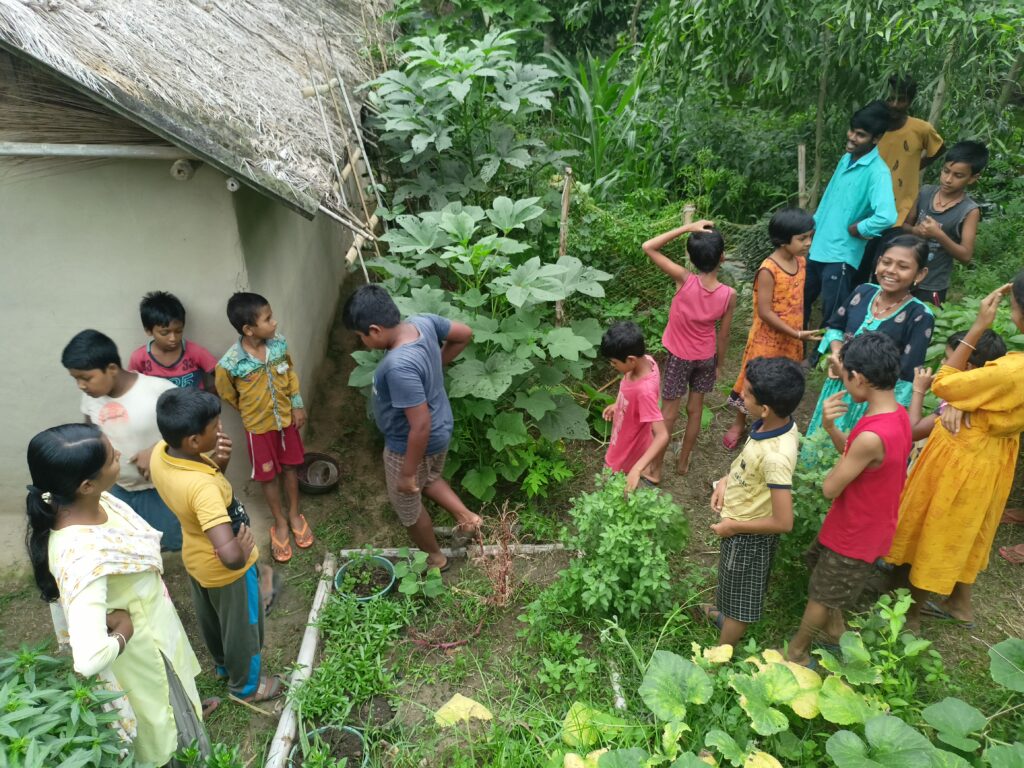
The uniqueness of Bon lies in its approach. At Bon, we firmly believe in doing evidence-based work and use forest garden as a strategy for transformation.
Initially, it was the younger generation, the children, who embraced our cause. We experienced that when children take up the task of making gardens, the whole family gradually joins in. So far, this is the most effective way to mobilize families in our region, freeing themselves from the globalized food chain by establishing local climate-resilient food production systems.
We envision to use our collective knowledge, skills, imagination and curiosity to build resilient tree-based perennial food production systems which are human centric to produce nutrient dense food and meet all human requirements while taking ecosystem services to foster a mutually beneficial relationship with other species and earth systems such that it successively generates more yields in a regenerative fashion and mitigates the challenges related to soil, water and air (aka 'forest gardens’ in a technical sense).
For us forest gardens go beyond food, aiming to meet human needs of shelter, clothing, healing, learning, entertainment, color and ecology. They act as building blocks for climate-resilient, regenerative rural economies. They act as a learning and experimentation spaces for kids, youth and the community to connect with nature and find employment using local, natural materials.
Besides gardening, we facilitate different activities on weekends with children, like playing outdoor games, nature walks, storytelling, art sessions, etc. We have grandparents who especially come to share their experiences and stories of the past, facilitating a conversation around the old and new. Gradually, we have been successful in gaining the wholehearted, voluntary participation of everyone in the local community.
We plan to deal with root-level problems by working with farmers and eliminating hidden poisons like plastic clothes made with synthetic dyes, modern building materials, and processed foods. We hope to bring a change by expanding from food and agriculture to building, clothing, healing, crafts, education, and entertainment over time and initiating a holistic approach to life.
We also envision a world where every village or neighborhood has an all-inclusive learning center ensuring no one is left behind. A place where communities can reconnect with nature, learn to live harmoniously with their surroundings and elevate their economies through sustainable practices. We also aspire to continue our involvement in the landrace movement started by Joseph Lofthouse, fostering genetic diversity and resilience in crops through cross-pollination.